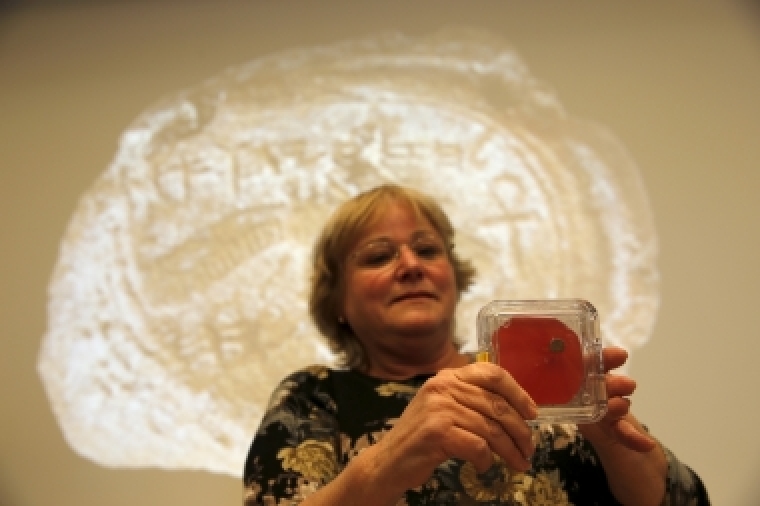

A rare seal impression bearing the name of biblical King Hezekiah has been found in Jerusalem, archaeologists announced on Wednesday.
According to the Hebrew University of Jerusalem, an inscription on the seal reads, "Belonging to Hezekiah [son of] Ahaz king of Judah", and it bears "a two-winged sun, with wings turned downward, flanked by two ankh symbols symbolising life".
The artefact would have originally sealed a papyrus document, possibly one signed by the king himself, and was unearthed in 2009 at a refuse dump near Jerusalem's Temple Mount. However, it is only this year that its significance was realised.
"Although seal impressions bearing King Hezekiah's name have already been known from the antiquities market since the middle of the 1990s, some with a winged scarab (dung beetle) symbol and others with a winged sun, this is the first time that a seal impression of an Israelite or Judean king has ever come to light in a scientific archaeological excavation," said Dr Eilat Mazar, who led the excavation.
"Here we have a chance to get as close as possible to the person himself, to the king himself."
According to 2 Kings, Hezekiah was the 13th king of Judah, and ruled for 29 years. He was determined to rid his kingdom of idolatry, and urged his people to serve God only. "Hezekiah trusted in the Lord, the God of Israel. There was no one like him among all the kings of Judah, either before him or after him," 2 Kings 18 says.
"He held fast to the Lord and did not stop following him; he kept the commands the Lord had given Moses. And the Lord was with him; he was successful in whatever he undertook."
In a statement confirming the discovery, Mazar said it "strengthens what we know already from the Bible about" Hezekiah.
However, some archaelogists believe the significance of the finding may have been overstated.
Robert Cargill of the Unversity of Iowa told The Daily Beast: "If this is a legitimate object, then it simply confirms the existence of a king named Hezekiah in Jerusalem."